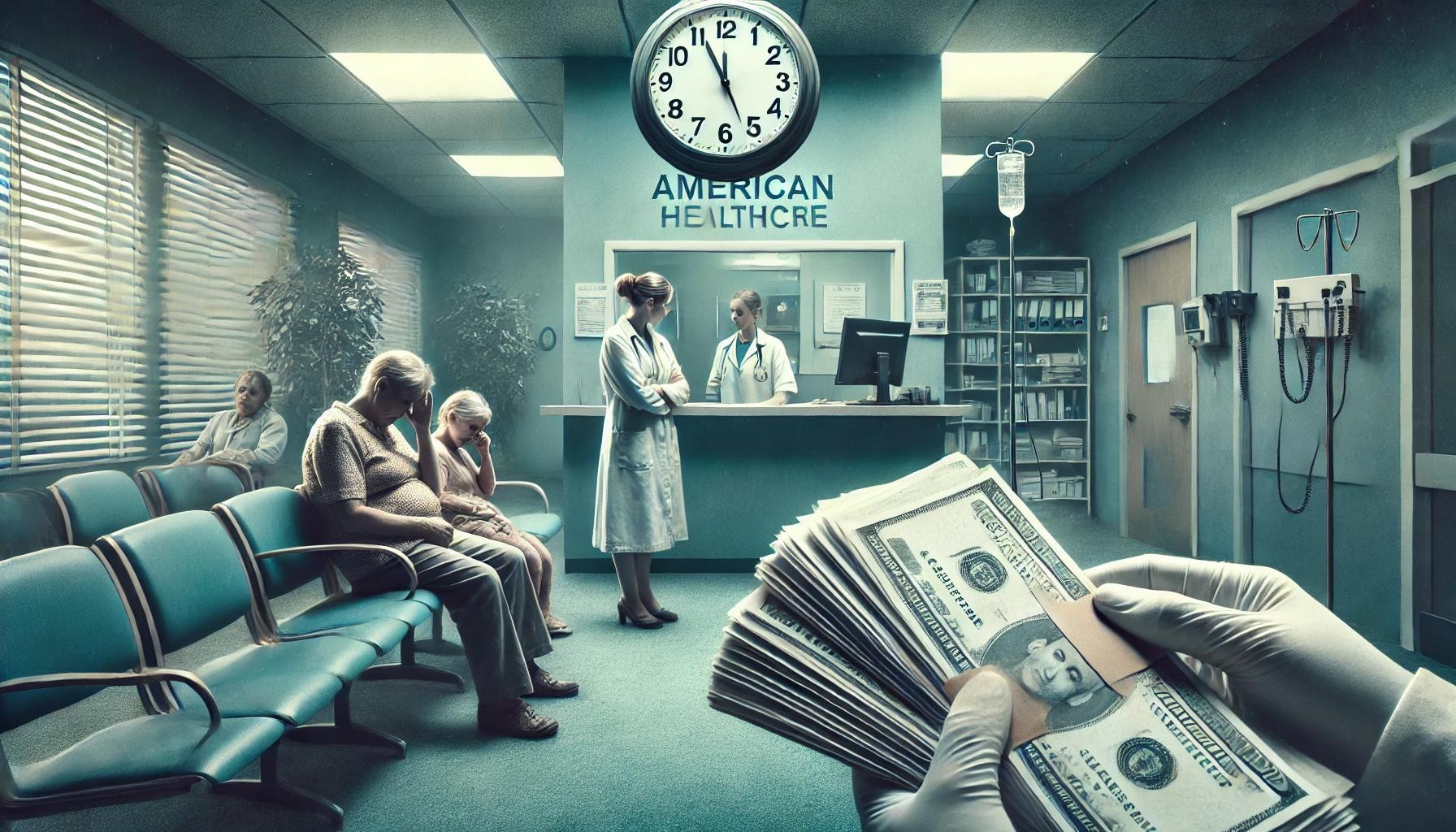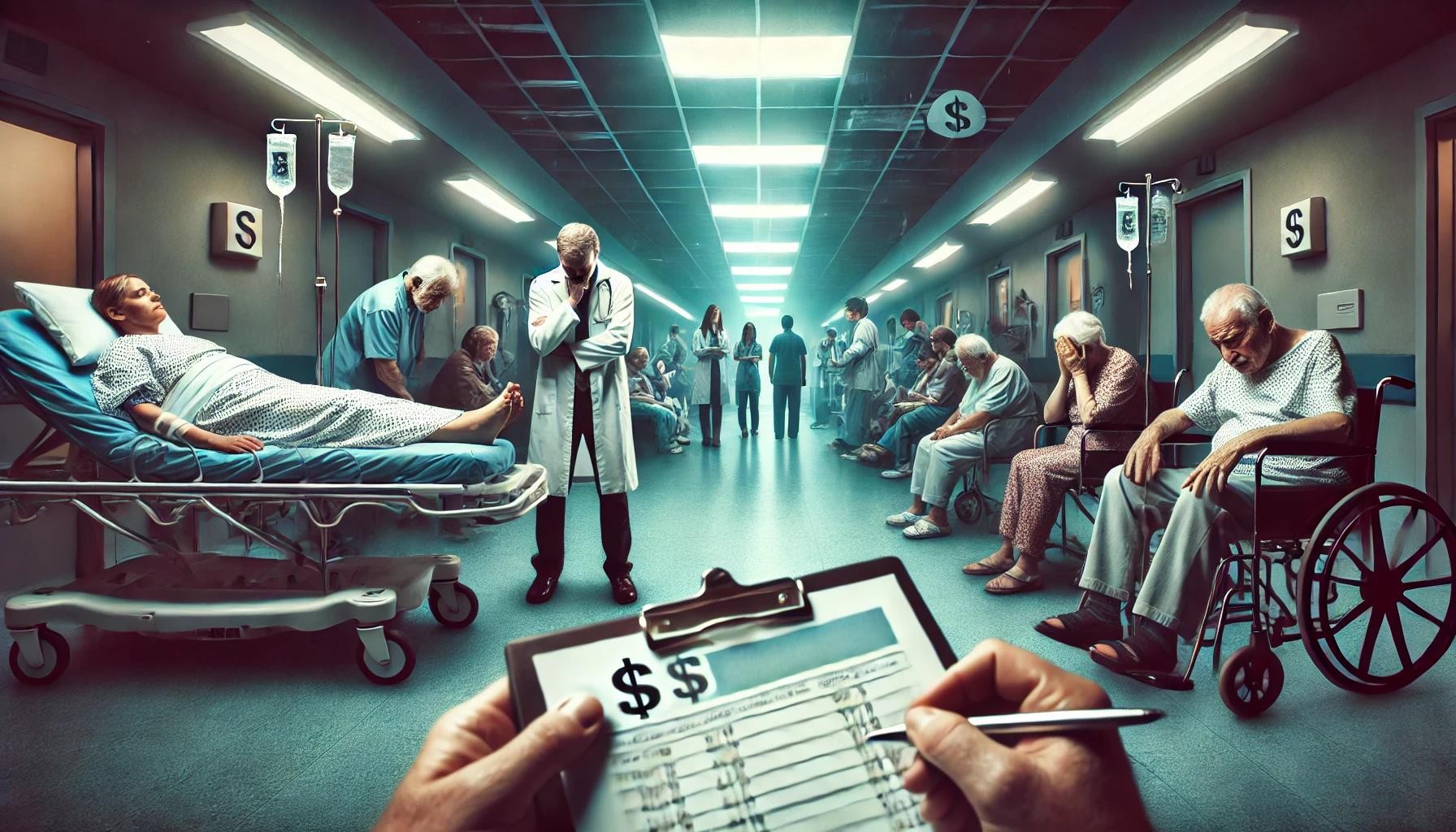Typically, a shooting in the United States would not significantly disrupt the news cycle. However, the assassination of one of the CEOs of UnitedHealth earlier this month has attracted relentless media upheaval. Much of the coverage has centred on Luigi Mangione, the alleged assailant, who reportedly harboured deep frustrations with the healthcare system following a spinal injury, and inability to get the proper healthcare in time. Beneath the sensational headlines, however, lies an opportunity for policymakers, to ignite a critical conversation about the urgent need for healthcare reform in America.
Public frustration with health insurers has manifested through Mangione’s case, with his alleged crime symbolising the final pressure point on a system already straining under decades of growing tension. This frustration is seemingly held back by an intentionally manufactured and widespread lack of healthcare literacy, fuelled by the complex, deeply rooted structures and excessive paperwork that define the healthcare insurance system.

These policies have denied critical treatments, driven families into financial ruin over uncovered medical expenses, and left entire communities underserved. The call for reform is growing louder, as many see health insurance not as a solution but as a bureaucratic obstacle—an imposing barrier rather than a lifeline.

While Mangione’s alleged actions cannot address the systemic flaws of a commodified healthcare system, the incident has the potential to spark a much-needed national dialogue. The critical question remains: Is the current role of insurance companies in American healthcare truly indispensable?

Employer-sponsored health insurance originated during World War II when wage controls incentivised employers to offer tax-exempt benefits. Post-war expansion solidified this system, with unions advocating for healthcare benefits. Although Medicare and Medicaid later addressed coverage gaps for the elderly and low-income populations, reliance on employer plans remains a salient part of the healthcare system for working Americans. What began as a practical solution has since evolved into a complex web that ties healthcare access to job stability, limiting choice and increasing dependency on employer-sponsored plans.

Luigi Mangione’s experiences then highlight the systemic flaws of the American healthcare system. Despite having employer-provided insurance, he faced significant bureaucratic obstacles, including claim denials and delays in accessing necessary care. These challenges not only worsenedhis condition, but also exposed a critical flaw in the system: possessing health insurance does not guarantee timely or affordable treatment.
 Journalist Ken Klippenstein was one of the few who published Mangione’s full manifesto, where Mangione writes: “A reminder: the US has the #1 most expensive healthcare system in the world, yet we rank roughly #42 in life expectancy.” As of today, America, despite operating the world’s most expensive healthcare system, ranks 48th in life expectancy—a glaring disparity that disproportionately impacts vulnerable populations.
Journalist Ken Klippenstein was one of the few who published Mangione’s full manifesto, where Mangione writes: “A reminder: the US has the #1 most expensive healthcare system in the world, yet we rank roughly #42 in life expectancy.” As of today, America, despite operating the world’s most expensive healthcare system, ranks 48th in life expectancy—a glaring disparity that disproportionately impacts vulnerable populations.
Mangione’s struggles are not unique, they reflect the challenges faced by millions of Americans. The average annual cost of healthcare in the U.S. stands at a staggering $15,074 per person, a figure that leaves many having to navigate a fragmented and profit-driven system that often prioritises financial gain over patient well-being. Around 40% of U.S. adults report struggling with medical debt (KFF, 2022), and a 2009 Harvard study linked 45,000 deaths annually to a lack of health coverage.
UnitedHealth Group further underlines the systemic issues within the healthcare insurance industry. In 2023, the company reported $371.6 billion in revenue, reflecting its ever-rising growth even as actual healthcare continues to decline. Notably, UnitedHealth carries the highest claim denial rate in the U.S., rejecting 32% of claims compared to the industry average of 16%. The company has also faced lawsuits for using algorithms to limit mental health coverage—a practice declared illegal in some states, but largely enabled by fragmented regulatory oversight.
The concentrated power of health insurers signifies these issues. According to the American Medical Association (2024), a single insurer dominates more than 50% of the market in 43% of metropolitan areas, which in turn fostersoligopolistic behaviour. This market dominance allows companies like UnitedHealth to keep a large portion of control over prices, limit competition, and prioritise profits over quality patient care.
Unsurprisingly then, UnitedHealth’s influence extends beyond the marketplace, and into policymaking. The company wields immense political and economic power through extensive lobbying and campaign contributions. This shapes regulations and Medicare reimbursement rates in its favour. By funding think tanks, advocacy groups, and bipartisan campaigns, UnitedHealth amplifies its sway over public opinion and policy, ensuring the system continues to prioritise corporate interests over those of patients.
Thus, the assassination of UnitedHealthcare’s CEO underscores the profound inequities entrenched in the U.S. healthcare system. The commodification of care—marked by soaring costs, denied claims, and insurer dominance—continues to exacerbate disparities and burden vulnerable populations. This moment demands a critical national rethinking with healthcare reform. Policymakers must confront the unchecked power of insurance corporations, reimagine employer-sponsored plans, and prioritise equitable, accessible, and patient-centred care. The pressing question is whether this tragedy will spark meaningful change or be another moment lost to a profit-driven system.
The tragic events surrounding Luigi Mangione and the assassination of UnitedHealth’s CEO have unveiled the deep-seated flaws in the American healthcare system. Beyond the sensational headlines lies a stark reality: a profit-driven model that prioritizes financial gain over patient welfare has left millions struggling. This moment presents a rare opportunity for policymakers to rise above entrenched corporate interests and initiate meaningful healthcare reform. The question is no longer whether change is necessary but whether society has the courage to confront the systemic inequities and prioritize a healthcare model that serves people, not profits. Will this tragedy serve as a turning point, or will it fade into yet another missed opportunity for reform? The answer lies in our collective will to act.
Sources:
KFF (Kaiser Family Foundation) 2022, Health Care Debt Survey, KFF.
https://www.kff.org/health-costs/report/kff-health-care-debt-survey/
Harvard Gazette 2009, New study finds 45,000 deaths annually linked to lack of health coverage, Harvard Gazette.
https://news.harvard.edu/gazette/story/2009/09/new-study-finds-45000-deaths-annually-linked-to-lack-of-health-coverage/
UnitedHealth Group 2023, Q4 2023 financial results, UnitedHealth Group.
https://www.unitedhealthgroup.com/content/dam/UHG/PDF/investors/2023/UNH-Q4-2023-Release.pdf
American Medical Association (AMA) 2024, 95% of US health insurance markets are highly concentrated, AMA.
https://www.ama-assn.org/health-care-advocacy/access-care/95-us-health-insurance-markets-are-highly-concentrated
Comments